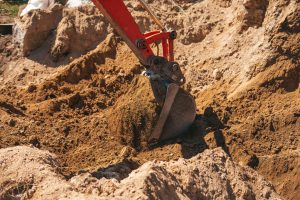In the realm of non-destructive digging, two techniques have emerged as the frontrunners: hydro and air excavation. Both techniques offer their own distinct advantages and challenges, making them suitable for a variety of applications. Perth’s leading vacuum excavation specialists pride themselves on offering safe and efficient non-destructive digging services, utilising both hydro and air excavation when appropriate.
In this article, we will compare these two powerful excavation techniques, delving into their strengths, weaknesses, and ideal applications to accurately assess which method is best suited for your specific project needs. By understanding the nuances of each method and how they differ, you will be well-equipped to make informed decisions and ensure the success of your excavation project. Enlist the expertise of Perth’s top vacuum excavation specialists and tap into the power of non-destructive digging with hydro or air excavation tailored to your requirements.
Hydro Excavation: Overview and Benefits
Hydro excavation, also known as hydro-vac or water excavation, is a non-destructive digging technique that utilises high-pressure water to break up soil and a powerful vacuum system to remove the slurry of water and debris from the excavation site. This method offers several advantages, making it a popular choice for various applications:
Precision and Efficiency
Hydro excavation allows for precise and controlled removal of soil, reducing the risk of accidental damage to underground utilities and infrastructure. This increased accuracy enables faster excavation while preserving the structural integrity of the excavation site.
Reduced Environmental Impact
By minimising the amount of disturbed soil and only removing the necessary material for the project, hydro excavation is considered more environmentally friendly than traditional digging methods. This minimised disruption helps protect local ecosystems, habitats, and vegetation.
Improved Worker Safety
The use of remote-controlled equipment in hydro excavation significantly reduces the need for manual labour, lowering the risk of worker injury and associated physical strain. Additionally, the non-destructive nature of hydro excavation reduces the likelihood of trench cave-ins or collapses, further enhancing on-site safety.
Air Excavation: Overview and Benefits
Air excavation, also known as dry vacuum excavation or pneumatic excavation, employs high-pressure air to loosen and break up soil, followed by a vacuum suction unit to remove the excavated material from the site. Similar to hydro excavation, air excavation offers a range of benefits:
Dry Excavation Process
Unlike hydro excavation, which uses water to break up soil, air excavation is a dry process. This makes it particularly advantageous when working in environments where the introduction of water can cause complications, such as unstable soil conditions or saturated clay soils.
Reusable Excavated Material
The excavated materials collected during air excavation are dry and can be easily reused as backfill for the excavation site. This reduces the time and expenses associated with sourcing and transporting additional backfill materials.
Lower Risk of Soil Erosion
Air excavation causes minimal alteration of the surrounding soil structure, reducing the risk of erosion or collapse. This allows for a more stable excavation site and helps maintain the integrity of surrounding infrastructure.
Comparing Hydro and Air Excavation: Differences and Applications
While both hydro and air excavation are non-destructive digging techniques, they possess distinct characteristics that make them suitable for different excavation needs. Some key differences and ideal applications of each method include:
Soil Type and Site Conditions
The choice between hydro and air excavation may largely depend on the type of soil and site conditions present. Hydro excavation is typically more effective in breaking up hard or compacted soils, such as clay or sandstone, while air excavation is often suitable for looser soils, including sand and gravel. Additionally, air excavation may be the preferred method for projects in regions with limited water supply or where the introduction of water may lead to complications.
Cold Weather Applications
In regions with freezing temperatures, hydro excavation can become less effective due to potential water freezing during excavation. Air excavation is generally more appropriate for cold weather applications, as it does not involve the use of water and is thus less susceptible to freezing-related issues.
Underground Utility Exposure
Both hydro and air excavation methods can efficiently and safely uncover buried utilities. However, hydro excavation may offer a slightly gentler approach, making it the preferred option when dealing with particularly delicate utilities, such as fibre optic cables or old and sensitive pipelines.
Selecting the Right Technique: Factors to Consider
When deciding between hydro and air excavation for your project, several factors should be taken into account to determine the most suitable method. Some key considerations include:
Project Objectives and Requirements
The nature and specific requirements of your project, such as excavation depth, soil type, and surrounding infrastructure, should be carefully considered when selecting the most appropriate method. Consult with vacuum excavation specialists who can evaluate your project needs and advise on the best technique for the job.
Environmental Impact
Consider the potential environmental impact of each method, including soil displacement, vegetation damage, and ecosystem disruption. Each excavation technique comes with its own environmental footprint, so choose the method that aligns with your sustainability goals and project requirements.
Local Regulations and Permits
It is essential to familiarise yourself with local regulations and permit requirements that may dictate or restrict the use of certain excavation techniques. Consulting with vacuum excavation professionals and local authorities can ensure compliance with all necessary rules and guidelines.
Transform Your Excavation Projects with Expertise and Innovation
Finding the right excavation method for your project is essential for optimal results, efficiency, and safety. By understanding the strengths, limitations, and best applications of both hydro and air excavation techniques, you can harness the power of non-destructive digging to transform your construction projects.
At Perth’s leading vacuum excavation specialists, we offer a wealth of experience and innovative solutions tailored to meet your specific excavation needs. Our team of skilled professionals will help you assess your project requirements and recommend the best-suited technique – be it hydro or air excavation – to ensure the success of your project.
Contact iVac WA today to discuss your requirements for excavation in Perth and experience the unparalleled safety, efficiency, and precision of non-destructive digging delivered by Perth’s top vacuum excavation specialists.

